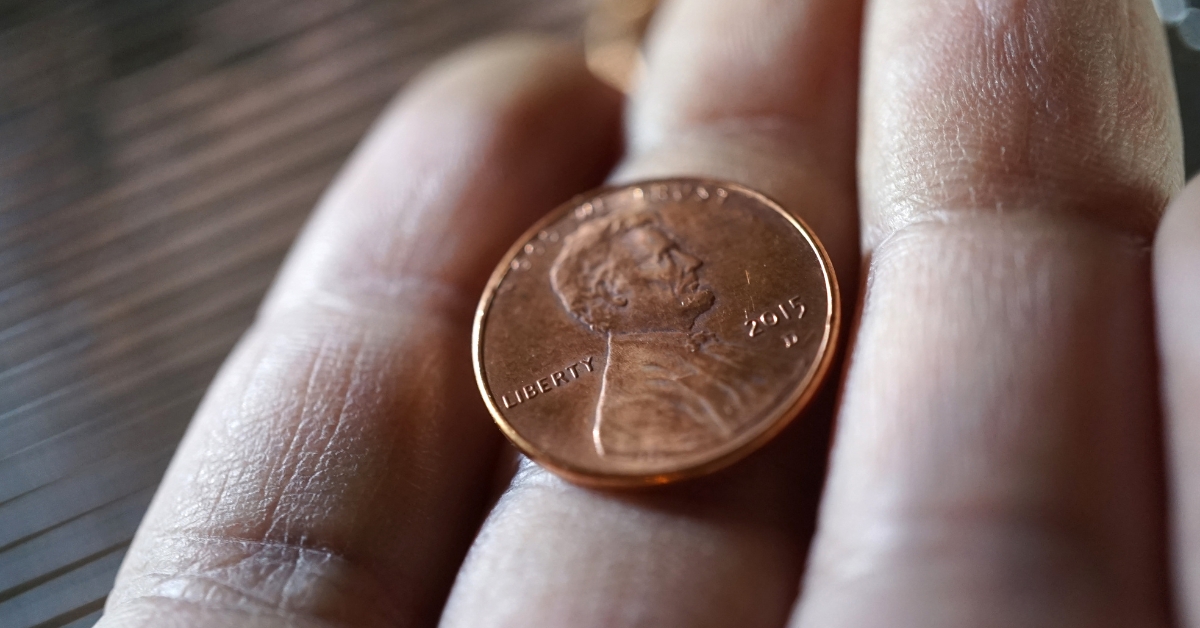Would you rather a penny doubled for 30 days or $1 million? Most people prefer $1 million. However, you should take the penny doubled daily for a month.
A penny doubled daily for 30 days equals $5,368,709.12. So, it would be better to wait a month for more than $5 million than to receive $1 million today.
The story of a penny doubled for 30 days is a metaphor to implore young people to save today for a more handsome reward in the future. It also teaches people about compound interest.

Read this investment guide to learn more about this story and the personal finance concept it teaches. It shows you how valuable it is to delay gratification today for a better tomorrow and other important lessons.
A Penny Double Daily For A Month Or $1 Million?
When asked, ‘what would you prefer, a penny doubled for 30 days or $1 million?’ Many people say they would prefer $1 million. However, just 1 penny doubled for 30 days is $5,389,709.12.

So, the person who chooses to receive their payout over 30 days gains far more than the person who receives $1 million.
What is the Moral of the Penny Doubled Story?
This lesson teaches two lessons. It teaches you how compound interest works and the importance of saving today for a more comfortable tomorrow.

Importance of Saving Early
The story of 1 penny doubled 30 days teaches you that saving today can bring a more handsome reward in the future. Of course, you will not double your investment each day. However, the average return on a 401k or mutual fund is around six percent.

With just $100 in a fund that yields six percent, your interest only equals $6. However, the more money you have in your investment portfolio, the higher your interest earnings. When you first start contributing, you will earn very little. However, when you have tens of thousands of dollars saved, you will earn more, so it is important to start saving for retirement when you are young.
It might seem futile to save $100 per month for retirement, especially if you could use that money now. However, after ten years of contributing, you will have $12,000 in your retirement account and earn an additional $600 per year for your investment. After another ten years, you would have more than $30,000 in your 401k. Six percent interest on $30,000 is $1,800 per year. So, in another 10 years, your retirement account will double again to over $60,000. In another 10 years, your investment of $100 per month or $1,200 per year would earn you more than $3,600 per year, and your retirement account will be worth more than $108,000.
Six percent annual interest on $108,000 is $6,480 per year. So, the interest and your $1,200 annual contribution over another ten years will add up to another $76,800, bringing your total retirement fund to a balance of $184,800.
If you start making contributions later in life, you will need to save more each month to catch up. So, it is better to save a little today because, in 40 or 50 years, your $1,200 per year investment will gain interest and be worth much more than the total you contributed of around $48,000 to $60,000. So, would you rather have $48,000 today or $184,800 when you can no longer work and you really need the money?
The Principal of Compound Interest
The story also teaches you about compound interest. You are not just charged interest when you are subject to compound interest on a loan. You are charged interest on the interest you accrue over the life of the loan.

Therefore, if you are late, you pay interest on the interest the bank charges you each month. The penny doubled story is extreme because banks do not charge you 100 percent interest. However, it is a good example of how quickly compound interest can add up.
The lesson is that you should make payments on time to avoid paying compound interest, which is why putting down a larger initial payment is better. By delaying your purchase, you can secure a lower, more affordable monthly payment, and you pay less compound interest over the life of the loan.
Final Thoughts on the Penny Doubled Story
The penny doubled daily story is similar to a fable. It is supposed to make you think about how compound interest and saving for retirement work. The moral of the story is important, though. So, no matter how small and insignificant you think your contribution is today, you will be glad that you made it down the road.
To learn more about personal finance subjects like investing in carbon credits, why houses are so expensive, and how to fill out a check, read the other guides on learnfinancialstrategy.com.
